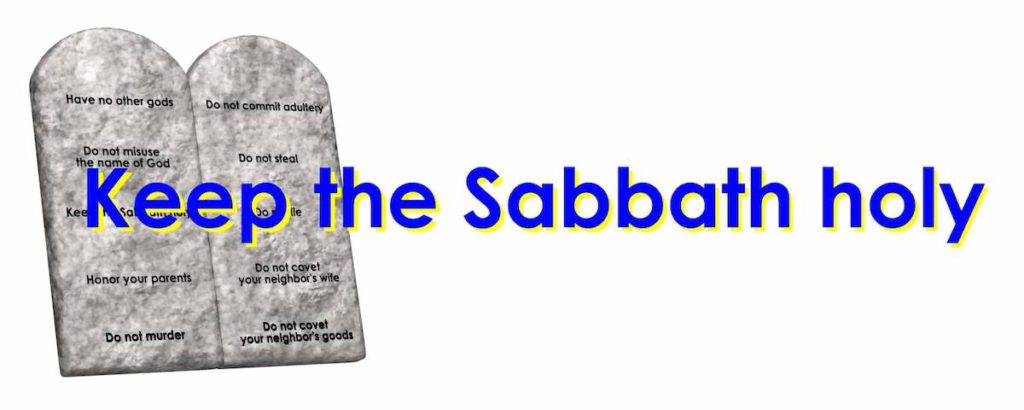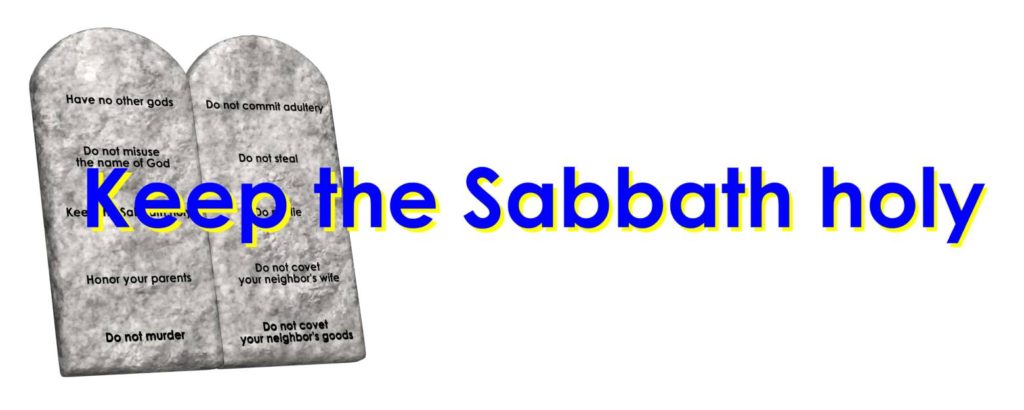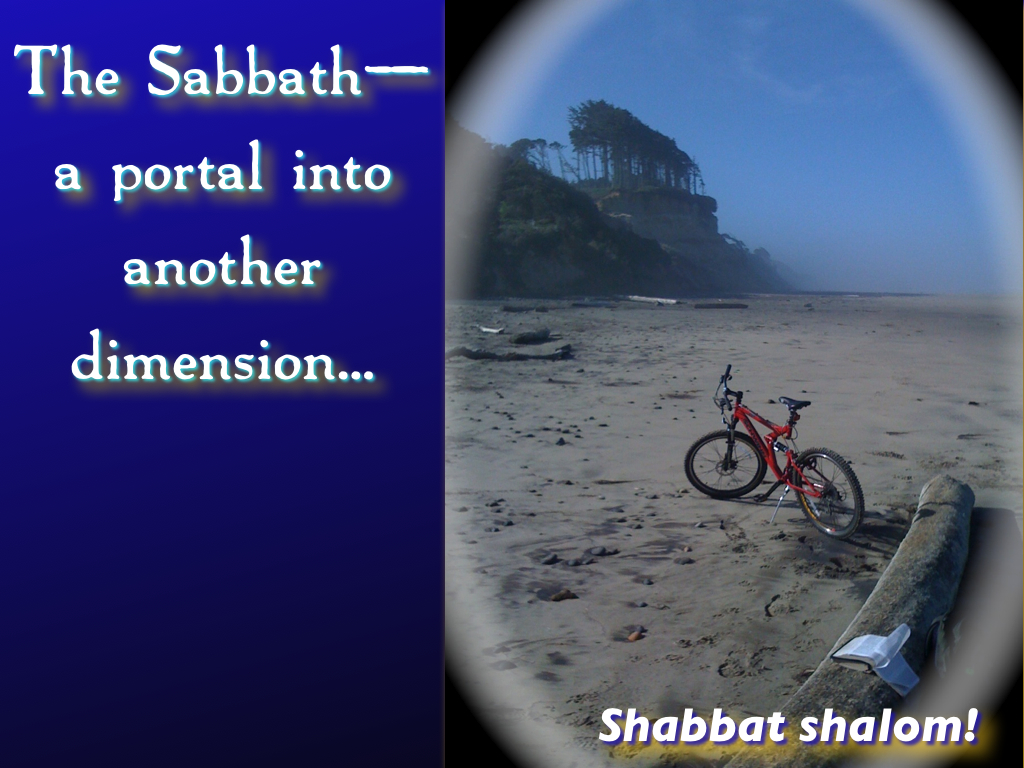
Numbers 15:32–36, On the Sabbath day. Let’s take a closer look at the Sabbath desecration in the wilderness.The Torah juxtaposes the sins of idolatry and Sabbath desecration because they represent the same concept. Just as the idolater denies the sovereignty of Elohim, so too, one who flouts the Sabbath, which testifies to Elohim’s creation of the universe, declares his lack of faith in the Creator. Because of the vital place of Sabbath in the constellation of Jewish belief, the Torah places this incident here, although it did not necessarily happen immediately after the rebellion of the spies (The ArtScroll Stone Edition Chumash, p. 815).
Working on the Sabbath is evidence of lack of faith in the Creator to provide for our needs on the other six days so that we will not have to work on the seventh day. Working on the Sabbath is also a result of unbelief (faithlessness), which is fear (the antithesis of faith; see 2 Tim 1:7). It is doubt, unbelief and fear (faithlessness) that prevented Israel from entering into the Promised Land for 40 years (Heb 4:1–11).
As we see from Hebrews chapter four, the Sabbath is a prophetic picture of entering YHVH’s spiritual rest and is symbolic of the Promised Land and the Millennium. When we rest from our physical labors on the seventh day we demonstrate that we have the requisite faith to enter the spiritual or millennial rest that YHVH has prepared for us, unlike the ten evil Israelite spies who lacked the faith in YHVH’s word necessary to go in to possess the Promised Land. Joshua and Caleb had this faith and they were able to enter the Promised Land.
Remember that the Sabbath is the sign of the Sinaitic Covenant (Exod 31:7, 13). If one walks in the righteousness of that covenant, one will be a recipient of the promised blessings of the New Covenant, which also includes the blessings of Torah-obedience as found in the Sinaitic or Mosaic Covenant. Perhaps this is why the Sabbath incident is juxtaposed with the spy incident in this section of the Torah. It shows the connection between keeping the Sabbath and entering the Promised Land.
Numbers 15:32. A man gathering sticks. A man gathering sticks. The man gathering sticks on the Sabbath is an example of intentional sin, for which there is no sacrifice (atonement or forgiveness; Num 15:30–31).
Furthermore, the act of gathering sticks on the Sabbath teaches us something else. Sticks are used to start fires, something that the Torah commands us not to do on the Sabbath—especially if it relates to our work, business or secular activities such as building the tabernacle (Exod 35:3 cp. vv. 4–35 or cooking food, see Exod 16:23).
A fire is a biblical metaphor for strife and division, which is usually caused by the misuse of the tongue (Prov 16:27; 26:20–21; Jas 3:5–6). Those who stir up the fires of strife and division must be put out of the camp, even as the man who was gathering sticks on the Sabbath to build a fire had to be put out of the camp of Israel.
Similarly, Paul gives instructions about putting individuals outside of the camp or congregation of redeemed Israel in several places (Rom 16:17–18; Tit 3:10 cp. 1 Cor 5:9–11 in reference to a reviler).
Why should such individuals be treated as a pariah to the congregation of the righteous? Simply this, with smooth words and flattering speech they will deceive the hearts of the simple (Rom 16:17–18) and destroy the congregation. Paul calls such individuals who use their tongues to draw a following grievous or savage wolves and perverse men (Acts 20:29–30).





